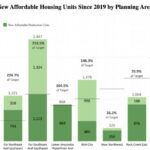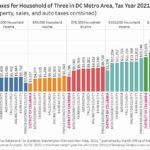The Federal Home Loans Administration (FHA) recently made an important change to its approval process that that has received little notice.
Starting mid-March 2019, FHA will now give greater scrutiny to applicants with credit scores less than 620, or with requested mortgage/debt payments above 43% of their income. These loan applications will from now will received greater scrutiny through a “manual” approval process which will vary from lender to lender, and is likely to approve fewer loans.
Because of this change many local, independent lenders that originate loans for the FHA are likely to not offer FHA home loans to borrowers that fall into this category (we know some that will).
FHA is making this change because of an increase in default among its borrowers, and this step it hopes will help reduce its overall delinquency rate among its mortgage borrowers.
_____________________________
FHA says as many as 50,000 mortgages will be affected by new lending rules
4-5% of FHA borrowers may no longer qualify
In the HousingWire, March 25, 2019
Two weeks ago, the Federal Housing Administration took steps to mitigate risks to its single-family portfolio, announcing updates to its TOTAL Mortgage Scorecard that will flag some FHA home loans for manual underwriting.
The move upset a number of lenders who feared that some of their borrowers would be shut out of FHA financing and that borrowers who began the process but no longer qualified under new guidelines would be angry.
Turns out, their fears have some merit.
An FHA official told The Wall Street Journal that approximately 40,000 to 50,000 loans a year will likely be affected, which amounts to about 4-5% to all the mortgages the FHA insures on an annual basis.
“We have continued to endorse loans with more and more credit risk,” said FHA’s Chief Risk Officer Keith Becker. “We felt that it was appropriate to take some steps to mitigate the risks we’re seeing.”
The WSJ points out that the move is a complete reversal of the agency’s 2016 decision to loosen underwriting standards, nixing an old rule that required manual underwriting for loans with credit scores below 620 and a debt-to-income ratio above 43%.
But the agency’s annual report to Congress released in November revealed risk trends that threatened to drain the program, among them a significant increase in cash-out refinances, a drop in average borrower credit score, and a jump in borrowers with high DTIs.
Requiring manual underwriting for riskier loans is intended to curb these risks, and there’s a good chance a number of borrowers will no longer qualify.
According to Becker, it’s likely that many of the loans flagged for manual underwriting won’t end up passing muster.
Click here to read the full article
_____________________________
Latest FHA Home Loans Shift To Mitigate Risks May Shut Out Some Homebuyers
Recent changes to TOTAL Mortgage Scorecard have some lenders worrying they won’t close
In the HousingWire, March 19, 2019
Last week, the Federal Housing Administration took steps to mitigate risks to its single-family portfolio, announcing updates to its TOTAL Mortgage Scorecard that may flag some loans for manual underwriting.
The change applies to all loans with case numbers assigned on or after March 18th, meaning that it is likely to affect some of the loans currently sitting in an FHA lender’s pipeline.
Chatter among members of the lending community suggests a number of originators are unhappy about the changes, fearing that the end result may be that some of their borrowers will be shut out of FHA financing.
Some said the FHA did not go about implementing the changes the right way, creating confusion about how the risk is being mitigated, while others said they felt as if the rug had been pulled out from under them, and fear that borrowers who no longer qualify will be angry, according to email exchanges between lenders and mortgage brokers, shared with HousingWire.
For its part, the FHA said it is taking necessary steps to address some of the risk trends apparent in its single-family portfolio and flagged as concerning in its 2018 Report to Congress.
Specifically, FHA home loans have seen a substantial increase in cash-out refinances, a drop in the average borrower credit score, and an increase in borrowers with high debt-to-income ratios.
In its letter about the Scorecard updates, the FHA said that the number of FHA refinances that are cash-outs increased 60% in 2018, and that almost a quarter of all FHA loans in 2018 had a DTI ratio above 50%.
The average credit scores for FHA borrowers has also declined, falling to 670 in 2018 – the lowest average since 2008.
Combined, these factors are signaling untenable risk for the agency as they flag the potential for the program to drain the Mutual Mortgage Insurance Fund.
“Federal Housing Commissioner Montgomery has publicly stated numerous times in recent months that FHA must seek the right balance between managing risk and fulfilling its mission of supporting sustainable homeownership,” the FHA said in its letter.
“To be successful long term, FHA must maintain the integrity of its insurance endorsements,” it continued. “This includes assessing the causes of the increase in higher-risk credit characteristics in the portfolio and making prudent and necessary changes to recalibrate and adjust its policies as warranted to manage credit risk.”
The agency said the updates to its Scorecard are just the first step it will be taking to address these risk factors.
“FHA will carefully monitor the impact of this change and is preparing to implement additional changes to maintain a better balance of managing risk and fulfilling its mission,” the agency stated.
Click here to read the full article







